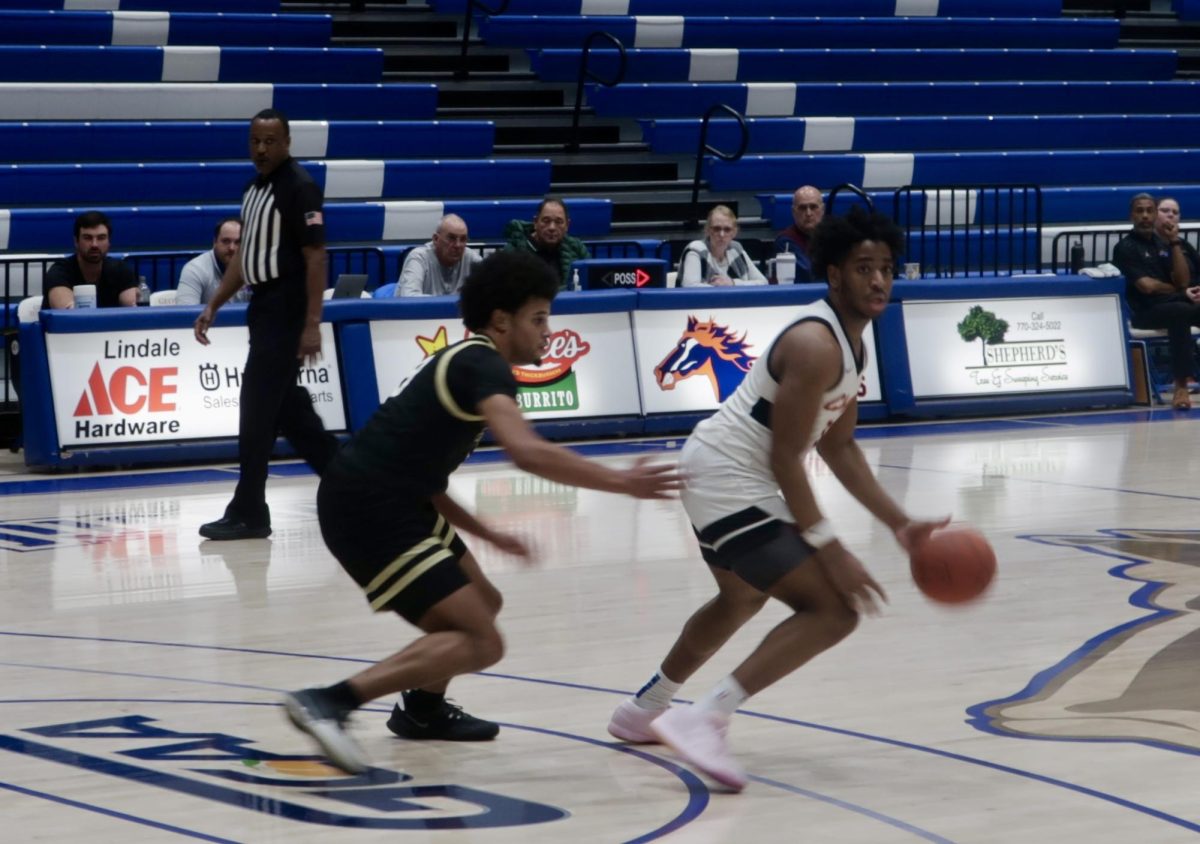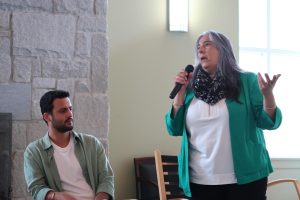Georgia Board of Regents bans all forms of tobacco
April 22, 2014
On March 19, the Georgia Board of Regents passed a policy which will ban the use of all forms of tobacco or simulated tobacco on all college campuses in the University System of Georgia beginning Oct. 1. This includes cigarettes, pipes, cigars as well as electronic cigarettes, commonly known as E-cigs.
The policy applies to “employees, students, contractors, subcontractors and visitors and is applicable 24 hours a day, seven days a week,” on all properties “owned, leased, rented or in the possession” of USG colleges, according to the Tobacco and Smoke-Free Campus Policy.
The current GHC policy allows students and faculty to use tobacco products in their vehicles but not anywhere else on campus.
The aim of the ban, according to Marion Fedrick, vice chancellor of human resources for the University System of Georgia, is to “preserve and improve the health, comfort and environment of employees and any persons occupying USG facilities.”
The enforcement of the policy is the duty of the college president. Students who violate the ban will be handled according to the Student Code of Conduct, and employees who violate the policy will be handled by policies stated by Human Resources.
Renva Watterson, interim president of Georgia Highlands, said, “I think it’s a worthy policy about student and employee health.” She also stated, “I believe it’s correct that educational facilities should be tobacco free.”
There are mixed opinions in regard to the policy. Some are in favor of the ban. Others are against it.
The Six Mile Post conducted an online survey asking, “Should smoking tobacco related products in your personal vehicle no longer be allowed while on campus,” and 62 percent said, it should be allowed while 38 percent said it should not be allowed.
Ben Allison and Kendall Canter, Floyd campus students, both stated they disagree with the ban.
Allison stated, “I don’t agree with smoking, but I think people should have a choice. It should be up to the person not the school.”
Jeremiah Hicks, Floyd student, said, “Tobacco is legal and people do it anyways. People should do as they please, as long as it’s not bothering anyone.”
Caleb Parris and Dennise Cornejo, sophomores on the Floyd campus, stated they are in favor of the ban. “It gives a better image to the college. It makes us look like we care about people’s health,” said Cornejo.
Justin Deal, sophomore on the Floyd campus, commented on an online Six Mile Post article, stating, “I personally am working on quitting myself, but it is not an easy path. And while I am treading down that path, I do not want to have to now add to my schedule to drive off-campus just to smoke my electronic cigarette.”
He continued, “This decision stresses me out, and just makes me want another cigarette.”
Still, there are others that are not on either side, saying that the ban has good intentions but invades personal rights and should instead allow designated smoking areas.
Most teachers interviewed are in favor of the ban, but there are also faculty members who are against it.
Johnny Duke, professor of mathematics, stated that he is content with the current policy, which allows for tobacco use in personal vehicles.
Mark Knauss, professor of biology, stated he doesn’t mind the ban but that it is invasive. “I don’t smoke, so it doesn’t affect me as long as others are considerate,” Knauss stated.
Angela Delgado, custodian, stated she is in favor of the policy. “I often walk by and see students and teachers standing next to the building smoking. Some even leave the butts in the bathroom sinks. I’m 100 percent in favor.”
Frank Minor, associate professor of English, and Jesse Bishop, assistant professor of English, said they see both sides.
“I agree with the health aspect, but I also think it is okay to smoke in their car because it’s not bothering anyone,” Minor said.
Bishop stated, “I definitely think there are fuzzy lines.”
The policy allows for exceptions if an institution is conducting research or if the president of the institution states exceptions.
Watterson stated she does not plan to make exceptions.



































































